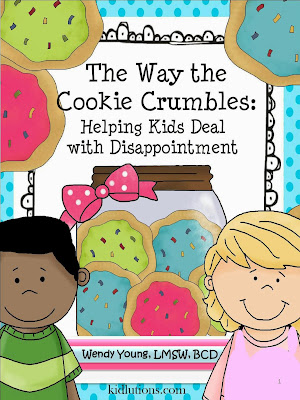Bridging Communication: Babies and Sign Language
Below, Louise addresses some common questions about using sign language with your baby or toddler, as well as provides guidelines on introducing your child to it. (Hint: We've seen some amazing results when using Louise's DVD/information in early childhood programs such as Head Start and Early Head Start!) Here's Louise:
Bridging Communication
I remember standing in my friend’s kitchen with her toddler whom I agreed to babysit for a few hours one morning. “David”, age 16 months, was obviously hungry and wanted something to eat that was hidden behind a set of cabinet doors. I opened them and reached in and grabbed the box of Cheerios. He looked at me with disappointment and proceeded to point again and vocalize “EH, EH”. So, I attempted to locate the correct item and reached in and took out a bag of crackers. This made David despondent as he yelled, “ EH!! EH!!” and started to cry - loudly. I eventually figured out that David wanted the fruit snacks, but by the time this revelation occured he was no longer the happy toddler from five minutes ago and now was almost inconsolable. The irony of this was as a School Psychologist, I knew that David most likely did not have the spoken vocabulary that matched the names of all his favorite foods and I also knew had David been able to use sign language we would have had a better chance at getting him the right food – the first time!
Does Sign Language Improve Behavior?
Does sign language
improve behavior? I answer this question with a
resounding –YES because many negative behaviors produced by young children are
due to lack of speech skills and the frustration that occurs when there is a
breakdown with communication. Sign language often acts as a
language “bridge” until speech “catches up” and in turn promotes positive
behaviors.
How sign language develops
before speech
Simply, the small motor skills necessary for sign
language apparently develop sooner than oral - motor skills, therefore sign
language production usually arrives first with an infant. Believe
it or not, a baby understands much of what is being said, but cannot express
themselves orally until around their first birthday! However, signing can occur
well before speech, therefore being a successful mode for communication and also
helping to promote speech itself! (No need to worry that your
child won’t talk or will be delayed because they learned to sign.
Research has proven the opposite is actually the result!)
How to Introduce Sign Language to Your Baby: 6 Tips
1. First be sure to introduce sign language to
your child during natural circumstances. For example, food words should be used
appropriately during mealtimes or when grocery shopping. Use other signs in
conjunction with the activity as well, such as bathing.
2. First signed words should include the
following: MORE, MOMMY, DADDY, FINISH (all done),
SLEEP, EAT, DIAPER, BATH, MILK (NURSING).
Next set of words can include WANT, READ, MUSIC, PLAY, CAREFUL and PAIN
3. For a child to pick up sign language they
first need to be exposed to it on a consistent basis.
MORE is often the very first
sign parents demonstrate as it works for many situations.
MORE- EAT , for example is a common
first phrase.
4. An infant will first start signing about two
months after consistent exposure or around eight months of age. Toddlers and
preschoolers will pick up the signs within days of being exposed and be able to
produce them much easier.
5. Expect your child to sign
incorrectly. This is akin to baby babble when they first start to speak.
It can be hilarious!
6. ENJOY the journey! Learning sign language is
a process and should be fun! The benefits are numerous and this could open doors
to a lifelong skill for all!
Louise Sattler is a Nationally Certified School
Psychologist, Founder and Owner of SIGNING FAMILIES and Co-Founder of 411 VOICES.
Links:
TWITTER @LouiseASL
www.Twitter.com/LouiseASL
PINTEREST http://pinterest.com/louisesattler/
WEBSITES:
SIGNING FAMILIES
BLOG: www.LouiseSattler.me
YOUTUBE http://www.youtube.com/user/Louiseasl
Thanks, Louise!
As always, at Kidlutions, we wish you Happy Parenting {and Teaching}!
Thanks, Louise!
As always, at Kidlutions, we wish you Happy Parenting {and Teaching}!








Comments
I have also given my kid's teachers the great folders with ASL on front/back. Love Louise - thanks for sharing about her!
Wendy =)